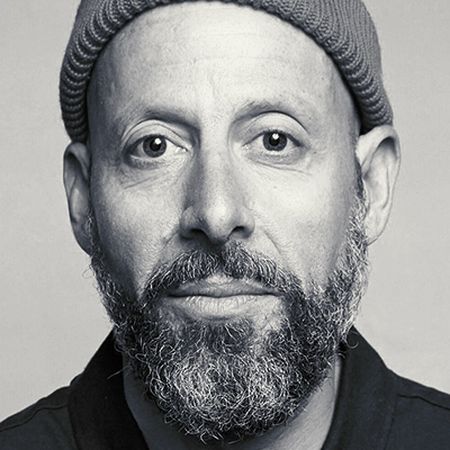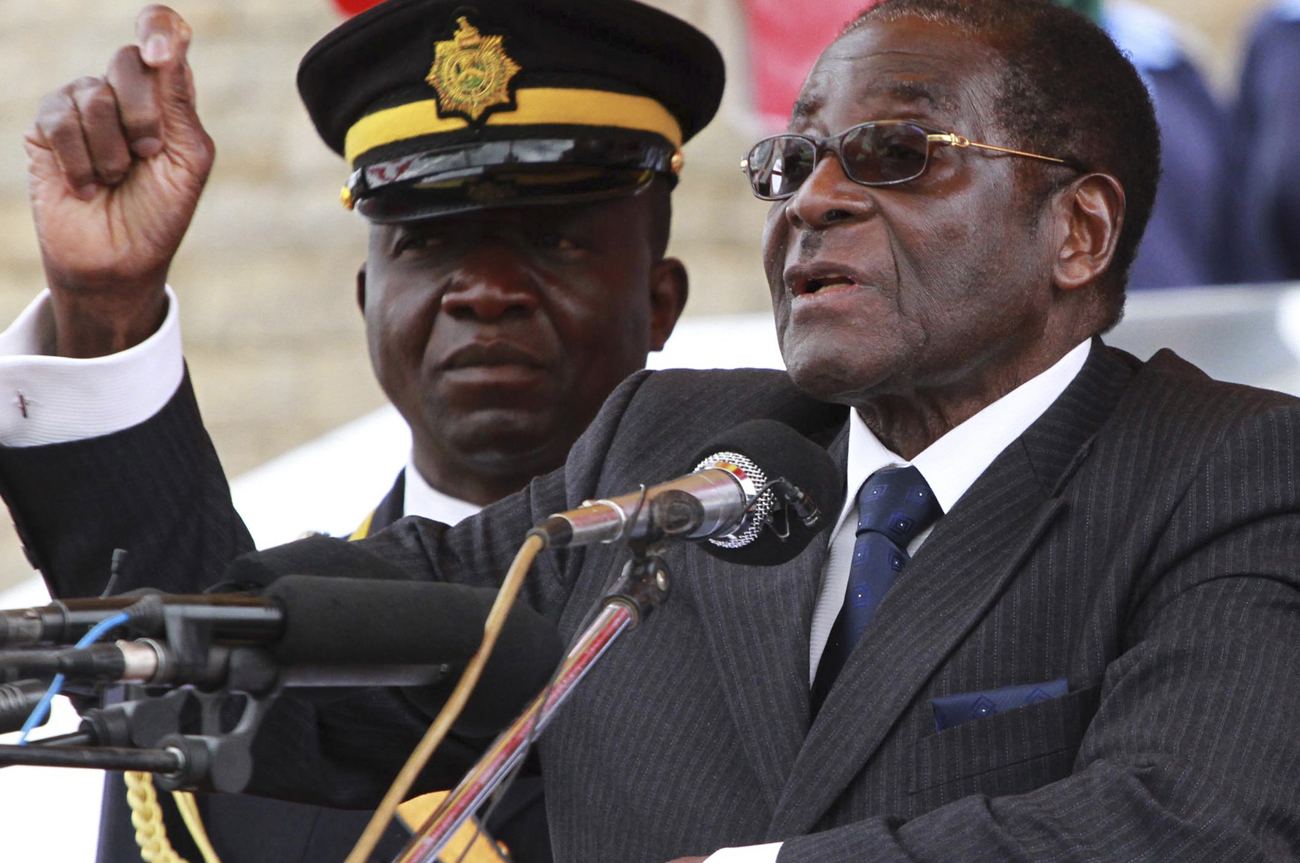A visit to the ZimTrade offices, in Harare’s Mount Pleasant Business Park, is a stark lesson in the abjectness of the Zimbabwean situation. Yes, the interconnected blights of fast-track land reform (that’s “illegal farm invasions” to the rest of the world), rampant hyper-inflation, and antic corruption have chewed locust-like through the local economy. And yes, were professional farmers still on their land, the mines operating with a measure of sanity, and the stink of graft not so palpable in every second business dealing, Zimbabwe – post “dollarisation” in 2009 – might be ticking along quite nicely. That said, ZimTrade brings one important fact to light: Even in halcyon days of yore, the Zimbabwean economy was relatively small. The breadbasket of Africa, it turns out, wasn’t exactly stuffed to overflowing with a prodigious GDP.
Currently, that GDP sits at about $5.5 billion. Cynics, realists, and everyone in between will hurriedly point out that such a number can’t be properly representative, given the above-mentioned economic ignominies. But even worst-case scenario skimming – and let’s wildly posit that billions are diverted from national coffers and into party and crony pockets (there’s lots of artful speculation on how much this may amount to, but it’s still speculation) – can’t hide the fact that 12 million people, plus agriculture and commodities, multiplied by tourism, doesn’t exactly make for a dizzying fiduciary equation. Zimbabwe was never a regional giant, economy-wise.
South Africa, on the other hand, most assuredly is. We may not be up to the standards of our new friends in the BRIC club – by their terms, we’re small beer. But South Africa’s $276 billion GDP towers over the region, casting a long shadow. The country has just shy of $45 billion in gold and foreign exchange reserves; more than seven times Zimbabwe’s total GDP. Our banks are well capitalised, and in several cases partly owned by foreign institutions. Investment interest, no matter how we complain, is serious and sustained. In short, ours is an open economy that has stakeholders from Patagonia to Petrograd. And yet, every time Julius Malema puts down a bottle of Johnnie Walker Blue to espouse the virtues of Robert Mugabe, or to deliver an encomium for Zanu’s nationalisation policies, South Africans take the bait.
“Just watch,” says your table neighbour at the local Ocean Basket. “Soon, this place is going to look just like Zimbabwe.”
There are several reasons why we frequently utter such banalities, and one of them has to do with misunderstanding Robert Mugabe’s primary motive for illegally wresting farms from white landowners – a process that started in 1999, but was in the works for about five years prior to that. South Africans of a certain pallour can’t see the political forest for the racist trees: Mugabe and Zanu-PF were less concerned with re-distributing wealth than they were with negating political threats from nascent opposition movements. It’s dangerously forgotten history now, but fifteen years into their tenure, Zanu were unloved and on the ropes; land reform was a means to distract the country by prodding a wound so emotional that it would blow the joint apart. This wasn’t an attack against white farmers, so much as it was an attack against the opposition – agriculture was collateral damage in a larger political game. Most Zimbabwean farmers know this. South Africans, however, swallowed the ideological flimflam whole.
The tragedy of fast-track land reform is, in the Zimbabwean context, boundless, and not just because it gave the lie to the notion of racial reconciliation. Indeed, what the invasions did highlight was how little reconciliation the country had undergone since independence, on every side of the divide. There was no Madiba to soften the transitional disorientation; no Archbishop Tutu to bridge longstanding Ndebele and Shona enmity; no Cyril Ramaphosa or Trevor Manuel to jettison the socialist rhetoric in favour of mainstream neo-liberal economic pragmatism.
In South Africa, it’s become a sport of the intellectual Left to rubbish the efficacy of 1997’s Truth and Reconciliation Commission. Two failures stand out for this group (and the writers of this piece, up until their recent research trip to Zimbabwe, were in sympathy with the view): first, FW de Klerk’s emotionless TRC apology for the wrongs of apartheid was qualified by the claim that neither he nor his cabinet knew about the atrocities committed at Vlakplaas; second, Thabo Mbeki attempted to block publication of the TRC’s findings due to the report’s conclusion that the ANC was guilty of gross human rights violations in its Angolan camps in the mid-1980s. These twin disappointments, in the eyes of many of our most celebrated public thinkers, were colossal. But what this line fails to account for is those things the TRC did entrench: a mainstream respect for the South African “other,” as evidenced in the symbols and words considered acceptable according to the rules of public discourse.
An extensive interview with a representative of Zimbabwe’s Commercial Farmers’ Union revealed to us just how far South Africa had come in the above respect. Our interviewee, a man who’d suffered beatings, imprisonment and the “repossession” of each of his farms, was in every sense a brave and honourable individual – his guiding principle for his ongoing legal battle to reclaim his land was “justice, not revenge”. Still, when we asked him why the organisation’s website had a list of names of white people killed in the “Terrorist War,” he was at a loss. “Ja, we, um, need to change that,” he mumbled.
The symbolic universe of the opposing side – and in many disturbing ways, it seems to the curious visitor that Zimbabweans of a certain age have yet to stop fighting a war that ended in 1980 – is just as non-conciliatory. Nowhere is this more evident than at Heroes Acre, the towering national monument situated on a hill overlooking Harare. From the murals to the inscriptions to the architecture, everything is defiantly and triumphantly aimed at the vanquished white oppressor. Here you will not find the historical exhaustiveness and nuance of the Apartheid Museum or the Hector Pietersen Memorial.
Which is not to say that South Africans should congratulate themselves, or that we are in any sense qualitatively “better” than our neighbours to the north. It’s to say, rather, something that’s abundantly obvious – South Africa and Zimbabwe are not, and never will be, the same country; their differences so far outweigh their similarities that they may as well not share a common border.
The major difference, though, may lie in the sense of self-conception. Zimbabwe, like many post-liberation African countries, was forced to address the vast economic disparities between the white over-class that owned the continent for so long and the black majority who entered independence with less than nothing. For the most part, Zimbabwe initiated this process in an exemplary fashion. As Faye Chung, a Zanu-PF stalwart and Mugabe’s first minister of education told us, there was a messianic belief in the fact that schooling would deliver average Zimbabweans from penury within the space of a generation. But, she added, “We wanted what the Rhodesians had.” In other words, the cultural disconnect between forging a new country and maintaining an ersatz Rhodesia (with a Zanu elite filling in for the Rhodies) was so vast that it swallowed up any hope of genuine nation-building.
So the next time Julius Malema returns from a VIP tour of Zanu headquarters on the corner of Samora Machel Avenue and Rotten Row in downtown Harare (which, by the way, does accept the odd interview request from foreign journalists), a couple of things are worth bearing in mind. For starters, regardless of the seeming parallels running between our respective liberation movements, the new South African dispensation does not hanker after the trappings of the old one. Here, forward momentum and its close cousin nation-building take place at the unsentimental (and ahistoric) level of modern global finance. Also, in case it hasn’t been mentioned before, to nationalise the mines in South Africa would be to nationalise debt – like South Africa experiencing hyper-inflation or state-sanctioned farm invasions, it’s a highly unlikely scenario. Isn’t it time, then, to put this haggard analogy to rest? DM
Photo: Zimbabwe's President Robert Mugabe addresses mourners at the funeral of his sister Sabina at Heroes Acre in the capital Harare August 1, 2010. REUTERS/Philimon Bulawayo.





